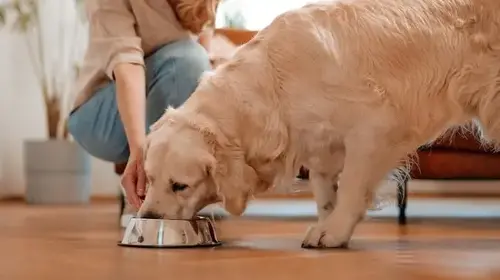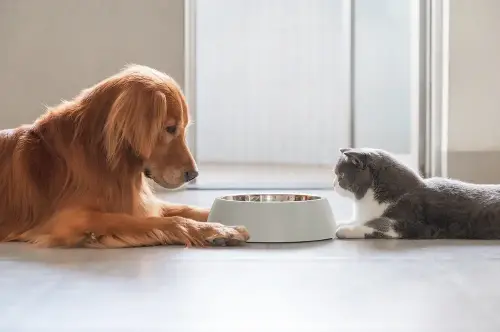
While giving bits and pieces from our own plate of food to our pets is a way of showing our affection to them, animals have different nutritional needs. While those drooling eyes can make us change our decisions in a second, it is essential to understand what our pets need and what we should avoid feeding them. Also read | Superfoods for super pets: Tips to boost immunity, coat, and gut health of your furry friend
In an interview with HT Lifestyle, Dr Kallahalli Umesh, small animal consultant said, “Pets’ diets must include the right mix of proteins, vitamins, and minerals to keep them healthy. Therefore, as responsible pet parents, it is important to be aware of some common myths about feeding pets and the significant differences in their diet as compared to human food.”
Myth: Human food gives pets all the nutrition they need
Fact: Some pet parents believe that human food alone is enough for their pets. While some foods contain nutrients, they do not provide a complete and balanced diet for pets. For example, dogs need specific amino acids, vitamins, and minerals that human food may not have in the right amounts. Cats, which are strict meat-eaters, need a high-protein diet and important nutrients like taurine found in meat. If they don’t get enough, it can affect their health. Feeding pets only human food can cause nutrition problems and health issues over time.
Myth: Some human foods are always safe for dogs
Fact: While some foods, like plain cooked chicken, pumpkin, or carrots, are safe for pets, many human foods can be harmful or even poisonous. Chocolate, onions, garlic, grapes, and raisins can cause serious health problems, such as poisoning, anemia, and kidney failure. Sugar-free products with xylitol can be deadly to dogs, even in small amounts. Milk can upset pets' stomachs since cats cannot handle milk sugar lactose and excess milk can cause loose stools in dogs. Also read | Planning a trip with your pet? Try these 5 easy home-cooked meals to take along

Myth: Homemade pet food is always healthier
Fact: Many pet parents think making their pet’s food at home is better than store-bought pet food. However, unless the meals are carefully planned by a vet, they may lack important nutrients. If the diet is unbalanced, it can cause problems. For example, puppies need the right balance of calcium and phosphorus for strong bones, and a lack of essential fatty acids can lead to dry skin and a dull coat. Homemade diets can be good, but they should be made with expert guidance to make sure pets get all the nutrients they need.
Myth: Pets can eat the same foods as humans
Fact: Pets digest food differently from humans because of some differences in digestive physiology. Any sudden change in diet or ingredients can upset their tummies. Many foods that are fine for people can cause stomach problems, weight gain or loss, or serious health issues in pets. Even if pets beg for human food, it’s always best to stick to meals made specifically for them. Also read | Nutritional guidelines for pet parents: Must-follow dietary tips for your furry friend's well-being
Note to readers: This article is for informational purposes only and not a substitute for professional medical advice. Always seek the advice of your doctor with any questions about a medical condition.
